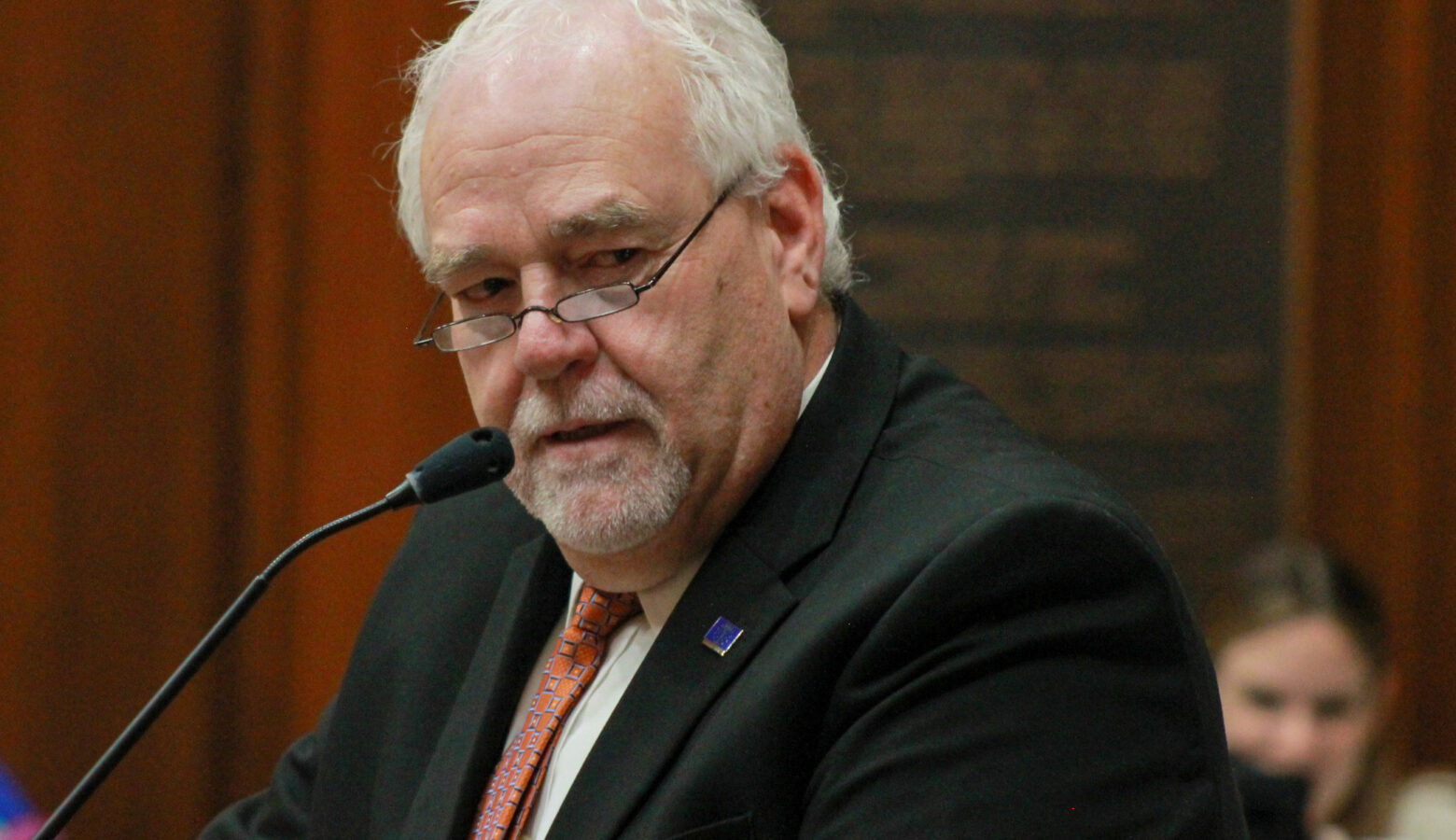Indiana lawmakers begin to explore artificial intelligence, its use in government

A legislative task force exploring artificial intelligence began its work this week by learning how state government currently uses AI.
Task force co-chair Rep. Matt Lehman (R-Berne) began the first meeting by reading off a long list of pros and cons of artificial intelligence.
“Now, for the sake of full disclosure, yesterday I went onto ChatGPT and I asked this question: ‘I want to know the pros and cons of AI for a presentation to legislative leaders.’ And in 22 seconds, that’s what printed out,” Lehman said. “It is wonderful and it is scary.”
State government is already using AI in multiple ways. The Department of Workforce Development uses it to develop recommendations for training, education and other resources to people applying for unemployment benefits.
The Office of Technology uses it internally to scan security logs and look for warning signs. And it’s testing a new chat bot the public can use to find state government information.
Join the conversation and sign up for the Indiana Two-Way. Text “Indiana” to 765-275-1120. Your comments and questions in response to our weekly text help us find the answers you need on statewide issues and the election, including our project Civically, Indiana.
IOT Chief Information Officer Tracy Barnes assured lawmakers the information people put into the chat bot stays within state government.
“So, our data’s not being fed into public models or public ChatGPT or public LLMs in any capacity,” Barnes said. “And that’s the big piece that we’re working and focusing on right now is governance and protection — to make sure that any data that we ingest does not get made available to anything on the public, on the outside.”
Lawmakers will continue to explore other AI issues, including whether to put any guardrails into state law and the cost of AI to state government.
Brandon is our Statehouse bureau chief. Contact him at bsmith@ipbs.org or follow him on Twitter at @brandonjsmith5.

